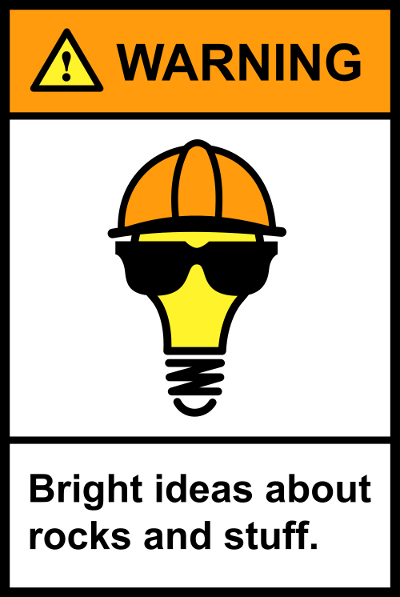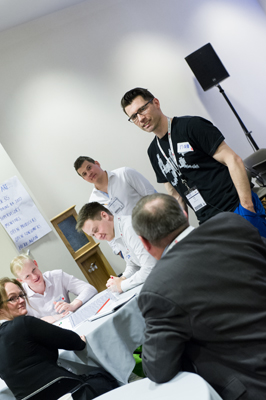Free the (seismic) data!
/ Yesterday afternoon Evan and I hosted the second unsession at the GeoConvention in Calgary. After last year exposing 'Free the data' as one of the unsolved problems in subsurface geoscience, we elected to explore this idea further. And we're addicted to this kind of guided, recorded conversation.
Yesterday afternoon Evan and I hosted the second unsession at the GeoConvention in Calgary. After last year exposing 'Free the data' as one of the unsolved problems in subsurface geoscience, we elected to explore this idea further. And we're addicted to this kind of guided, recorded conversation.
Attendance was a little thin, but those who came spent the afternoon deep in conversation about open data, open software, and greater industry transparency. And we unearthed an exciting and potentially epic conclusion that I hope leads to a small revolution.
What happened?
Rather than leaving the floor completely open, we again brought some structure to the proceedings. I'll post the full version to the wiki page, but here's the overview:
- Group seismic interpretation: 5 interpreters in 5 minutes.
- Stories about openness: which of 26 short stories resonate with you most?
- Open/closed, accessible/inaccessible: a scorecard for petroleum geoscience.
- Where are the opportunities? What should we move from closed to open?
As you might expect, the last part was the real point. We wanted to find some high-value areas to poke, or at least gather evidence around. And one area—one data type—was identified as being (a) closed and inaccessible in Canada and (b) much more impactful if it were open and accessible. I gave the punchline away in the title, but that data type is seismic data.
Open, public seismic data is much too juicy a topic to do justice to in this post, so stay tuned for a review of some the specifics of how that conversation went. Meanwhile, imagine a world with free, public seismic data...
 Reflections on the 2nd edition
Reflections on the 2nd edition
The afternoon went well, and the outcome was intriguing, but we were definitely disappointed by the turnout. We have multiple working hypotheses about it...
- There may not be a strong appetite for this sort of session, especially on a 'soft' topic. Next time: seismic resolution?
- The first day might not be the best time for it, because people are still in the mood for talks. Next time: Wednesday morning?
- The programme maybe didn't reflect what the unsession was about, and the time was unclear. Next time: More visibility.
- Three hours may be too much to ask from people, though you could say the same about any other session here.
We'd love to hear your thoughts too... Are we barking up completely the wrong tree? Does our community even want to have these conversations? Should we try again in 2015?








 Except where noted, this content is licensed
Except where noted, this content is licensed